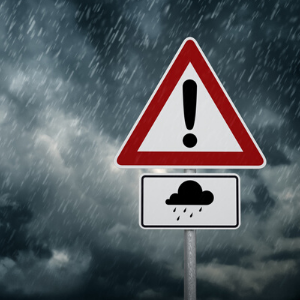
Recent storms and extreme weather have affected large parts of the country, causing a lot of distress. The team at First Step, North Cumbria’s psychological well-being service, have shared some advice on coping with the effects that flooding and extreme weather events can have on your mental wellbeing.
In the first days and weeks
Many people will be experiencing strong reactions to the impact of the floods. Everyone is unique and will react differently, but typical reactions to such an extreme event can include:
- Shock
- Disbelief
- Stress
- Nervousness, fear or anxiety
- Difficulty sleeping
- Worry
- Low mood
- Irritability
- Anger
Such feelings are completely normal. For some people who have been flooded previously, their reactions may be compounded and might lead to feelings of hopelessness or helplessness.
For people who have been exposed to highly threatening situations, people can also experience flashbacks or nightmares. This is normal in the days and weeks following the events. We are all individuals and there is no right or wrong way to be coping or feeling.
We all have different ways of responding and circumstances can vary greatly, from those with strong social networks to those who are more isolated or do not have friends and family in the area.
For some people, they may have been experiencing other life difficulties or problems before the floods; the additional stress of the flood can become ‘the straw that breaks the camel’s back’.
For most people, their first priorities will be practical around basic needs such as shelter, food, clothing, transport. During later stages, people are focussed on repairing the damage and trying to deal with builders and insurance companies to try and get their homes back in order.
In the following weeks and months
For most people affected who have never experienced problems with anxiety or low mood before, these psychological effects will gradually disappear over time and with support from the local community.
So a period of ‘watchful waiting’ is advised, which means just keeping an eye on yourself and others and checking out how things are going before assuming that any reactions won’t go away on their own with time.
However, from past local experience we know some people might experience problems that they need more help overcoming. These can include depression and post-traumatic stress disorder. It can take several months for someone to seek help, when practical tasks have been completed and they may be starting to realise that there has been a longer term effect on their mental health.
Getting help
We know from previous floods that some people in our region have said they didn’t know where to seek help for such problems, or they avoided asking for help because they worried about what other people might think.
If you do feel that your reactions to the floods have got you stuck in a rut, or that you’re feeling more low or anxious than you might expect, help is available. Seeking help is sensible and is not a sign of weakness.
Psychological Wellbeing Services are for adults who are finding it difficult to cope, feel low, anxious or stressed, worried, or are not sleeping properly. You can contact them on the following numbers:
- Cumbria:0300 123 9122
- Gateshead:0191 283 2541
- Newcastle:0191 282 6600
- Northumberland:0300 3030 700
- North Tyneside:0191 295 2775
- South Tyneside:0191 283 2937
- Sunderland:0191 566 5454
CNTW also has a range of self-help guides that are available online in a range of formats, including British Sign Language. The guides are available online at www.cntw.nhs.uk/selfhelp.
